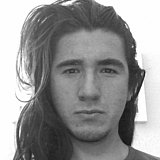Hernán Bobadilla Rodríguez

In 2009, I completed my BSc degree in Geology at the University of Chile. From 2010 to 2012, I continued my studies in geology, developing an MSc dissertation on the geochemistry of the Northern Antarctic Peninsula Batholith and its implications for the tectonic evolution of the Antarctic Peninsula. With this thesis, I was awarded my MSc and Professional degrees with highest distinction. As a geologist, I worked for mineral exploration companies and the Chilean Geological and Mining Survey. From 2014 to 2015 I studied an MSc degree on History and Philosophy of Science at University College London. For my dissertation I worked on assessing production accounts of causality in seismic phenomena. I was awarded my MSc degree with distinction and my dissertation won the prize for "Best Contribution to the Science and Technology Studies Department by an MSc Student".
In February 2016 I became a member of the DK Programme ‘The Sciences in Historical, Philosophical and Cultural Contexts’ at University of Vienna.
My main research interests are philosophy of causality and philosophy of modelling and simulations, with a special focus on Earth sciences. Further research interests are process metaphysics, pluralism, scientific evidence, complex systems, emergence, chaotic behavior, robustness and philosophy of science in practice.
Research Project: Causality, models and earthquakes: Advancing explanations and predictions in seismology by means of philosophical investigations
The main goal of my PhD research is to perform philosophical investigations about causality in seismic models and simulations, in order to advance explanations and, hopefully, predictions of earthquakes. Indeed, as earthquakes are natural phenomena with negative impacts on society and economy, it is relevant to understand their behavior. Unfortunately, explanations of some aspects of seismic phenomena are still inconsistent or absent, and predictions of earthquakes have been so far elusive. I suggest seismological practices and theories can be fairly aided by expanding and enriching the notions of causality implicitly embedded in seismic models. Causality is indeed a controversial topic in philosophy of science. Nevertheless, most philosophical discussions on causality have neglected the problems of seismology. On the other hand, implicit perspectives on causality, considered to build up several seismic models, are seemingly restricted. My strategy will be to focus on assessing two different accounts of causality: mechanisms and processes. This assessment will be performed in the context of a widely documented, but not quite understood, aspect of seismic behavior: fractals. In other words, I will evaluate how mechanisms and processes account for fractal patterns obtained by computer models. By assessing the role of these accounts of causality in seismic models, and the way in which they could complement each other (indeed, my hypothesis is that we might aim for some type of causal pluralism), I expect to enlighten some ways in which seismic modelling might be improved.
UZA2/Rotunde - Althanstrasse 14, Ebene 3, Stiege H
1090 Wien
GPS: 48.23287, 16.358927
T: +43-1-4277-40872
F: +43-1-4277-40870




